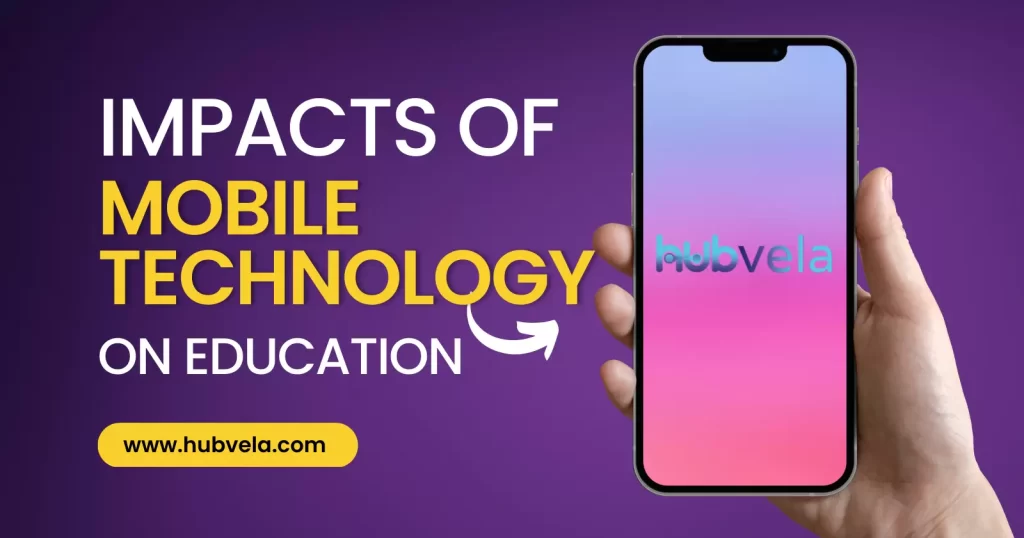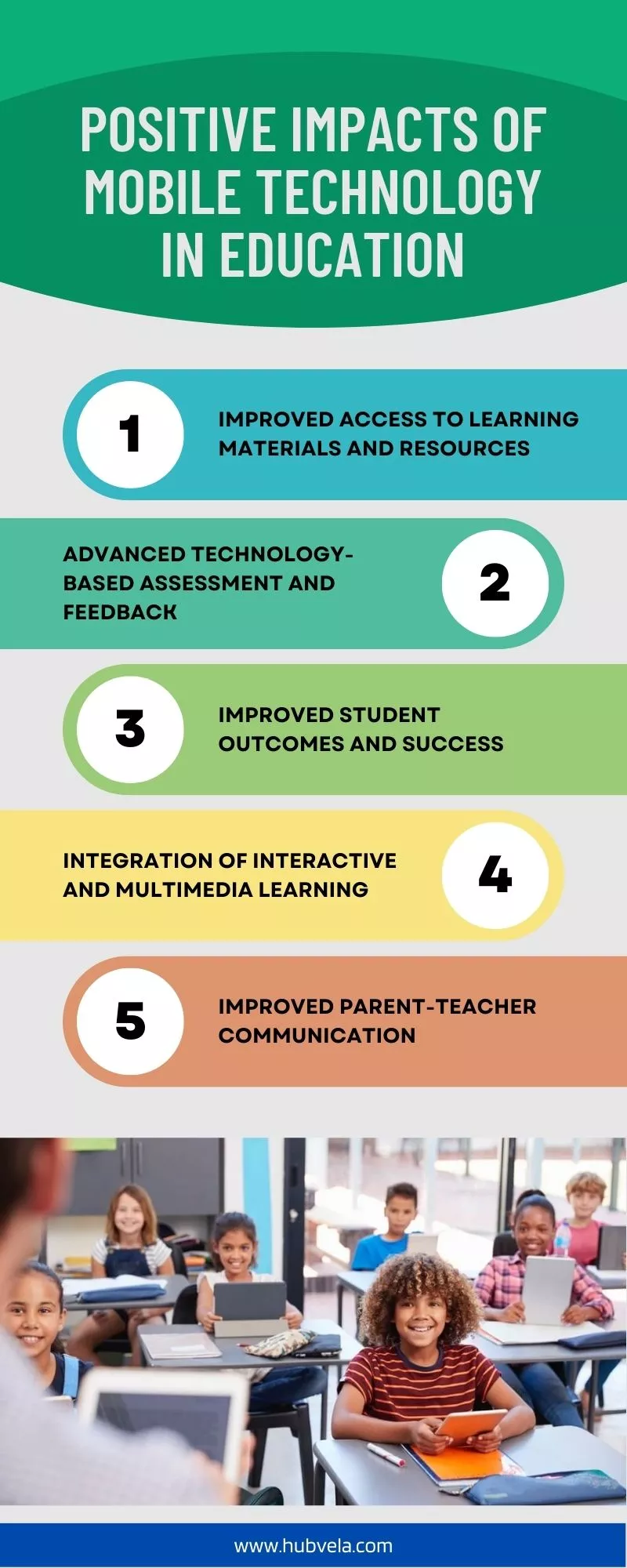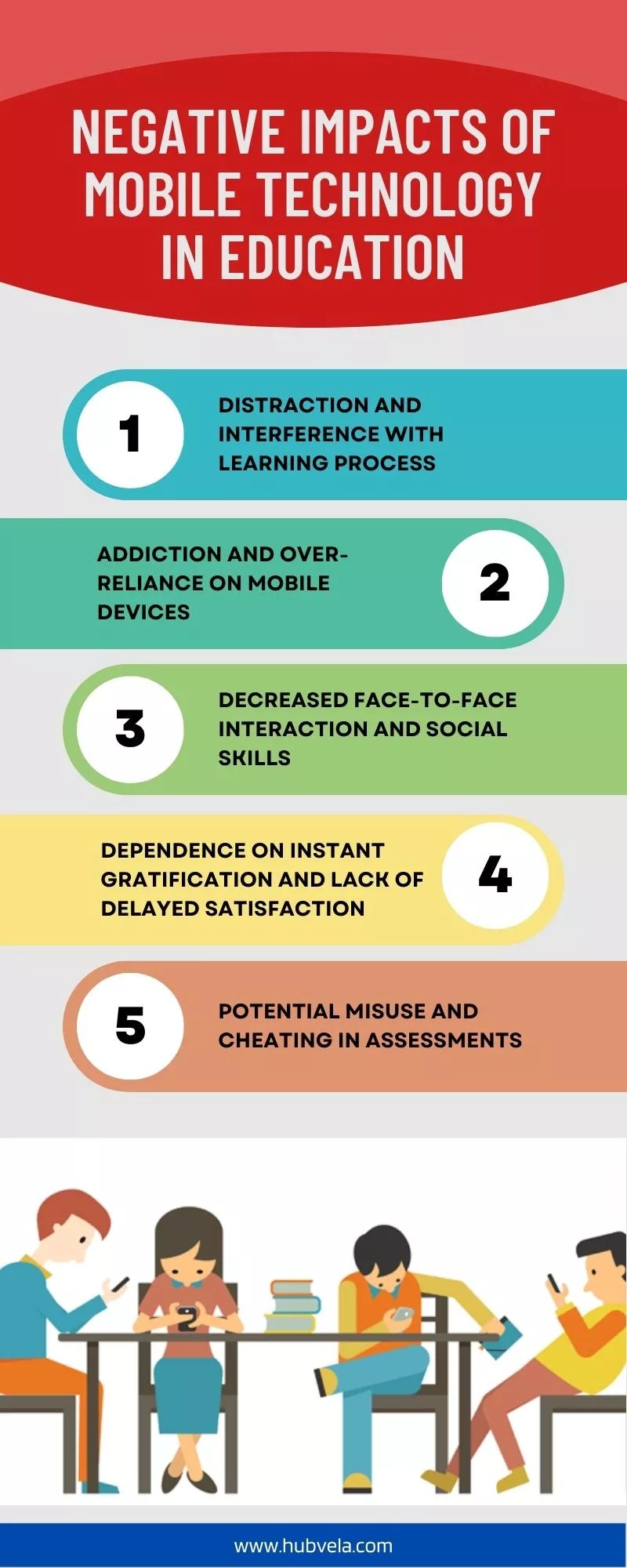Mobile technology has become an integral part of our daily lives, and its impact on education has been significant. With the rise of smartphones and tablets, students and teachers alike have access to a wealth of information and resources at their fingertips.
However, as with any technological advancement, there are both positive and negative impacts of mobile technology on education.
In this article, we will explore both the positive and negative impacts of mobile technology on education.

--Advertisement--
Positive Impacts of Mobile Technology on Education
Mobile technology has revolutionized the way we learn and has had a significant impact on education. With the advent of smartphones and tablets, students and teachers alike have access to a wealth of information at their fingertips.
While the pandemic has highlighted the importance of technology in education, it is not the only reason why mobile technology has become an essential tool for teaching and learning. From increased engagement and retention to expanded access to education, the positive effects of technology on education are numerous.
We will explore the major positive impacts of mobile technology on education.

1. Improved Access to Learning Materials and Resources
Mobile technology has brought about positive impacts in education, one of which is improved access to learning materials and resources.
With mobile devices, students can access educational resources from anywhere and at any time, making learning less location-dependent.
This is particularly beneficial for students with learning difficulties or disabilities. Additionally, mobile technology has made it easier for educators to provide inclusive education by tailoring teaching to suit the needs of individual students.
Open educational resources (OER) are also becoming more popular, providing students with free access to learning materials.
Overall, mobile technology has made education more accessible and inclusive, providing students with the opportunity to reach their full potential.
2. Advanced Technology-Based Assessment and Feedback
With tech-based assessment platforms, teachers can give feedback to students through video, audio, or text. This allows for personalized feedback that can be delivered directly to families, which can help students further develop their skills.
Additionally, technology has redefined K-12 educational assessments, making them more efficient and effective.
Using technology for evaluation and assessment has several advantages, including the ability to identify outcomes for advising and creating student learning outcomes.
This is necessary for the UbD model, which focuses on understanding by design.
Tech-based formative assessment is another way that technology has positively impacted education. Even with just a few digital devices in school, teachers can leverage the power of technology to check for understanding in the classroom.
This allows for active engagement with the learning material, which helps students become passionate about what they are learning.
Overall, advanced technology-based assessment and feedback have revolutionized mobile technology in education, making it more personalized, efficient, and effective.
3. Improved Student Outcomes and Success
Studies have shown that access to technology increases computer usage and proficiency. Additionally, technology can help address existing educational inequalities by providing access to information and communication technologies.
Furthermore, a recent study found that student mindsets are twice as predictive of students’ academic success than even their home environment and demographics.
The impact of technology on student outcomes varies across different geographies, but it has been shown to have a positive impact on student outcomes.
By incorporating culturally relevant teaching and empowering students socially, emotionally, intellectually, and politically, we can enhance teaching effectiveness and student learning outcomes.
Finally, creative and digital literacy skills have been shown to be key to improving student outcomes while in school, helping institutions meet their goals
4. Integration of Interactive and Multimedia Learning
The integration of interactive and multimedia learning has had a positive impact on education, especially with the use of mobile technology.
With the help of technology, teachers can create a more engaging and interactive learning experience for students.
By utilizing different types of technology in the classroom, such as virtual classrooms, students become more actively engaged with learning objectives.
Multimedia learning theory suggests that students learn more effectively when information is presented through both audio and visual channels.
The use of technology in education has also led to increased interactivity and class engagement, better overall comprehension, practical learning, time management, and combined learning methodologies.
Studies have shown that the use of multimedia in education plays a positive role in enhancing the general trend toward the use of computers in education.
Therefore, the integration of interactive and multimedia learning through mobile technology has had a significant positive impact on education.
5. Improved Parent-Teacher Communication
Mobile technology has brought about positive impacts in education, and one of the most significant is improved parent-teacher communication.
With the help of mobile technology, teachers can easily communicate with parents and keep them informed about their child’s academic progress, behavior, and other important topics.
This two-way communication can boost parent engagement and foster strong relationships between parents and teachers.
By prioritizing communication with families, educators can break down barriers and provide support for all students.
There are many ways to improve parent-teacher communication, such as using messaging apps, scheduling regular meetings, and sharing student work and progress reports.
With mobile technology, teachers and parents can work together to ensure that students receive the best possible education and support.
Negative Impacts of Mobile Technology on Education
Mobile technology has revolutionized the way we communicate, work, and learn. With the rise of smartphones and tablets, students now have access to a wealth of information at their fingertips.
However, while mobile technology has undoubtedly brought many benefits to education, it has also had negative impacts that cannot be ignored.
We will explore some of the major negative impacts of mobile technology on education.

1. Distraction and Interference with Learning Process
The negative impacts of mobile technology in education cannot be ignored, especially when it comes to distraction and interference with the learning process.
While technology can be used for learning and engagement, it can also be a source of distraction.
Students may believe they are good multitaskers, but using electronic media while doing schoolwork negatively impacts learning.
The presence of technology in learning environments has also been associated with negative variables such as affective engagement.
Therefore, it is important to manage attention and distractibility in online learning. We need to find a balance between using technology for learning and avoiding its negative impacts on the learning process.
2. Addiction and Over-Reliance on Mobile Devices
Addiction and over-reliance on mobile devices are growing concerns in today’s society. Studies have shown that excessive use of mobile devices can lead to negative effects on mental health, including anxiety and depression.
It can also lead to physical health problems such as eye strain, neck, and back pain, and disrupted sleep patterns.
To combat this issue, experts recommend setting boundaries and limiting screen time, as well as finding alternative activities to engage in, such as exercise or spending time with friends and family.
Additionally, some mobile devices now offer features to help users monitor and limit their usage. It is important to be aware of the potential risks associated with over-reliance on mobile devices and take steps to maintain a healthy balance.
3. Decreased Face-to-Face Interaction and Social Skills
The increased use of mobile technology in education has led to a decrease in face-to-face interaction, which can have negative impacts on social skills.
Studies have shown that children’s social skills may be declining due to their increased use of digital media, which limits their time for face-to-face interaction.
Face-to-face interaction is essential for the development of personal trust and bonds that allow for experimentation and creativity.
The pandemic has further impacted our communication skills, as we naturally crave connections and facial expressions are an essential part of non-verbal communication.
It is important to find a balance between the use of mobile technology and face-to-face interaction to ensure that students develop strong social skills that will benefit them in the future.
4. Dependence on Instant Gratification and Lack of Delayed Satisfaction
The negative impacts of mobile technology in education are becoming increasingly apparent, particularly in relation to the dependence on instant gratification and lack of delayed satisfaction.
Over-reliance on instant gratification behaviors can change our brains, distract us from more meaningful pursuits, and lead to destructive financial habits.
In the age of instant gratification, it is important to teach students the value of delayed gratification and impulse control.
Delayed gratification has been linked to better academic performance, fewer behavioral problems, and higher SAT scores.
By teaching students the importance of delayed gratification, we can help them develop self-control and self-regulation skills that will benefit them throughout their lives.
5. Potential Misuse and Cheating in Assessments
The rise of mobile technology in education has brought about many benefits, but it has also opened up opportunities for potential misuse and cheating in assessments.
With the ability to access information at their fingertips, students may be tempted to cheat during exams or assignments.
This not only undermines the integrity of the assessment process but also hinders the development of critical thinking and problem-solving skills.
Moreover, the use of mobile technology in education has also led to the emergence of online essay mills and other cheating services.
These services provide students with pre-written essays and assignments, which they can submit as their own work.
This not only violates academic integrity but also deprives students of the opportunity to learn and develop their own skills.
To address these negative impacts, educators must take proactive measures to prevent cheating and promote academic integrity.
This can include implementing strict policies on the use of mobile devices during assessments, using plagiarism detection software, and educating students on the importance of academic honesty.
By doing so, we can ensure that mobile technology is used in a responsible and ethical manner in education.
Conclusion on the Positive and Negative Impacts of Mobile Technology on Education
In conclusion, mobile technology has both positive and negative impacts on education. On the positive side, mobile phones have made it easier for students to access educational resources and communicate with their peers and teachers.
Technology has also advanced education, making it more accessible and interactive. However, mobile technology can also be a distraction and lead to problematic smartphone use, daytime sleepiness, and other negative effects.
It is important for educators and parents to monitor and regulate the use of mobile technology to ensure that it is being used in a productive and healthy way.
With proper management, mobile technology can be a valuable tool in education and beyond.


